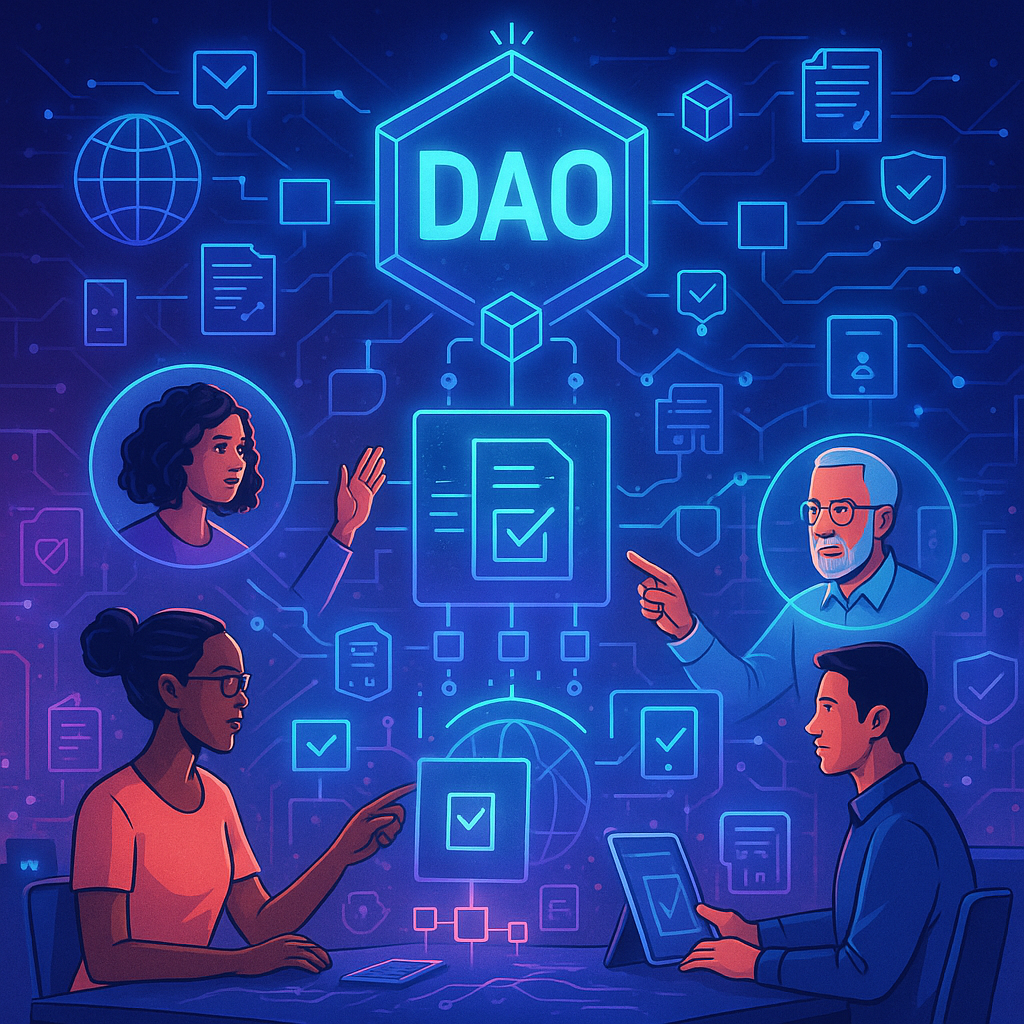The decentralized tech world is changing quickly — and DAOs (Decentralized Autonomous Organizations) are keeping pace. DAOs have grown from a simple blockchain test to more advanced practical systems known as DAO 2.0.
This upgraded version brings legal structures, reputation scoring, and improved voting systems — making DAOs more reliable, productive, and suitable for real-world applications.
Let’s explore what DAO 2.0 means and why it’s important for the future of governance and online teamwork.
🧠 What Is DAO 2.0?
DAO 2.0 represents an upgrade from traditional DAOs. Earlier versions of DAOs enabled individuals to manage funds and make decisions through tokens and smart contracts. However, these systems had major drawbacks, including unclear legal status unfair voting mechanisms, and vulnerability to security breaches.
DAO 2.0 aims to address these issues by:
- Establishing legal recognition for DAOs
- Shifting more control to active participants (beyond just token holders)
- Enhancing the process of decision-making and implementation
In essence, DAO 2.0 enhances the security, fairness, and functionality of decentralized communities.
⚖️ Legal Wrappers: Providing Legal Protection to DAOs
A major issue facing early DAOs was their lack of legal status. This made it challenging to:
- Enter into formal agreements
- Set up a business bank account
- Shield participants from potential lawsuits
To address this, DAO 2.0 introduces a “legal wrapper” – , a corporation or foundation (such as an LLC) established to act on behalf of the DAO in the physical world.
This legal framework allows DAOs to function as legitimate enterprises, while maintaining their online decentralization. It marks a significant advance toward widespread acceptance.
⭐ Reputation Systems: Earning Trust, Not Buying Power
Traditional DAOs often gave the most voting power to those with the most tokens. This resulted in a concentration of control where the richest members called all the shots.
DAO 2.0 shakes things up with voting based on reputation. Power no longer stems from money, but from what members bring to the table — such as:
- Finishing tasks
- Taking part in talks
- Supporting the group
This approach makes the DAO more open to all, and it values real work over deep pockets.
🗳️ Wiser Voting: Choosing Options That Deliver
DAO 2.0 has a new take on voting methods. Simple token-based votes are prone to manipulation, and many members skip participating. That’s why newer DAOs now use:
- Quadratic voting: Evens out votes to prevent large holders from dominating
- Delegated voting: Allows members to pick trusted representatives
- Reputation-weighted voting: Rewards experienced contributors with more say
These fresh approaches result in smarter choices more member involvement, and fewer issues with governance.
🧪 Real-World Examples of DAO 2.0
Several current DAOs already apply these improvements:
- LexDAO offers legal assistance to DAOs and aids them in establishing legal structures
- Gitcoin employs reputation and quadratic voting to support developers
- MolochDAO streamlines DAO voting and budget approval processes
These groups demonstrate that DAO 2.0 isn’t just a concept — it’s unfolding as we speak.
🔮 What’s Next for DAO 2.0?
In the coming years, DAO 2.0 will include:
- Cross-platform reputation tracking (like a decentralized LinkedIn for people who contribute)
- AI tools to manage proposals and spot fraud
- Plug-and-play legal wrappers to set up faster in different countries
- Mobile-friendly DAO interfaces to increase community involvement
These new ideas will help DAOs become actual options instead of traditional organizations — with more openness, quickness, and control by the community.
